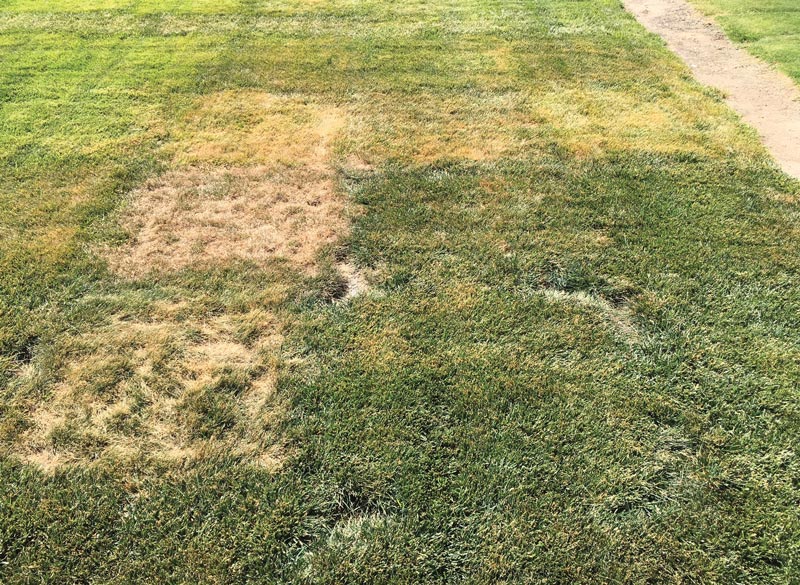
Photo by Matteo Serena
Editor’s note: The following research project is in progress and was featured in the Cutting Edge section of GCM.
Historically, Kentucky bluegrass has been considered a poor choice for turfgrass areas in arid and semi-arid climate zones, as it is considered a high-water-use grass. However, research conducted at New Mexico State University indicates that such a notion may be misleading and does not tell the whole story.
There is no question that warm-season grasses such as bermudagrass and buffalograss have greater drought tolerance and lower irrigation requirements than traditional cool-season grasses, but quality expectations and seasonal usage may force turf managers and superintendents to grow cool-season instead of warm-season grasses.
Current research (e.g., NTEP low-water-use trials) looks at either turfgrass performance under permanently reduced irrigation (chronic drought stress) or the length of time grasses maintain quality and green color after irrigation is withheld. However, natural or artificially (e.g., temporary watering restrictions) imposed periods of drought will eventually end, and when they do, knowledge is needed about which grasses recover more quickly after drought.
Ongoing trials at New Mexico State University (arid, USDA plant hardiness zone 8) are aimed at investigating irrigation requirements and drought recovery of different cool-season turfgrasses. First results indicate that if performance during drought and speed of recovery after drought stress are factored into a decision, several Kentucky bluegrass varieties perform better than perennial ryegrass and equal to or better than tall fescue varieties.
The trials will be conducted over several years to find out whether these results also hold true in the long term.
— Bernd Leinauer, Ph.D., and Matteo Serena, Ph.D., New Mexico State University, Las Cruces, N.M.
Teresa Carson is GCM’s science editor.